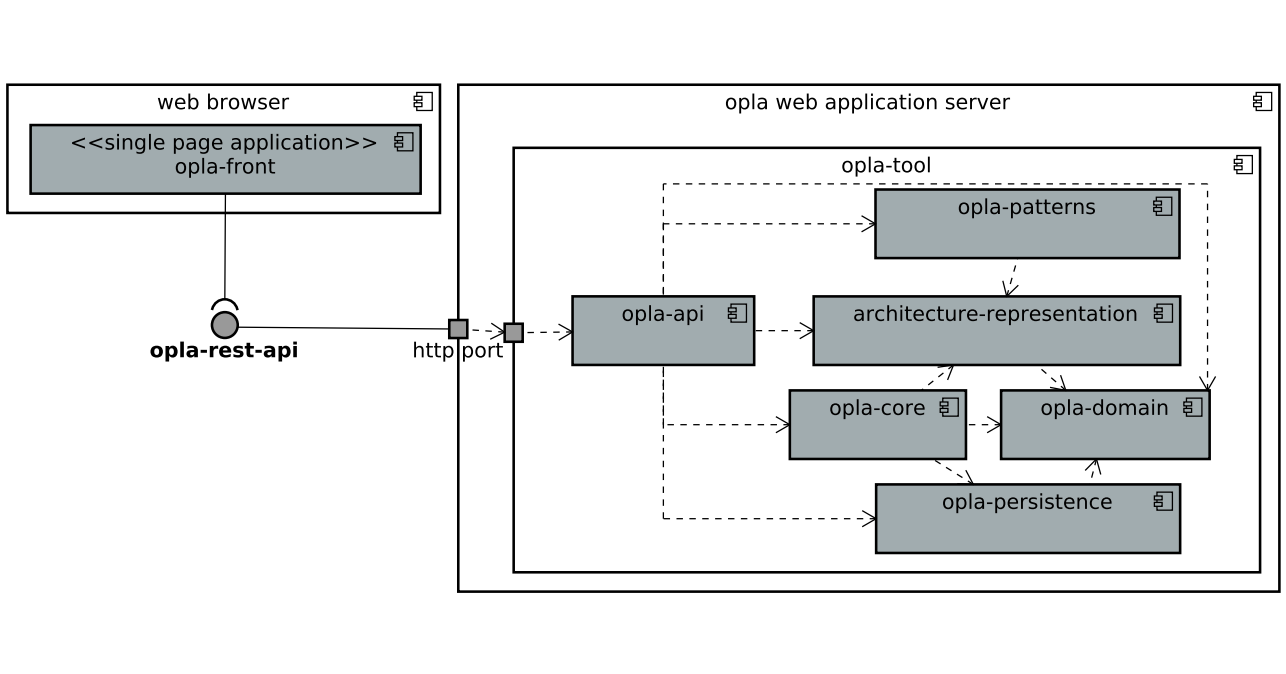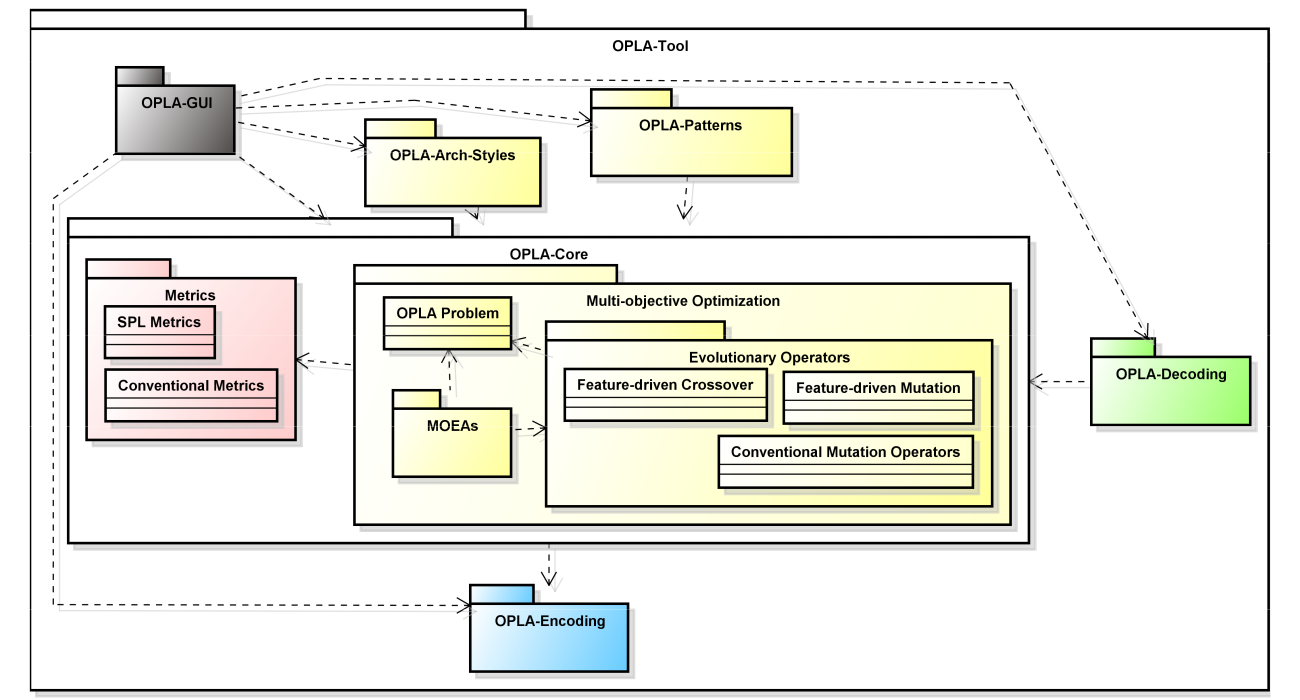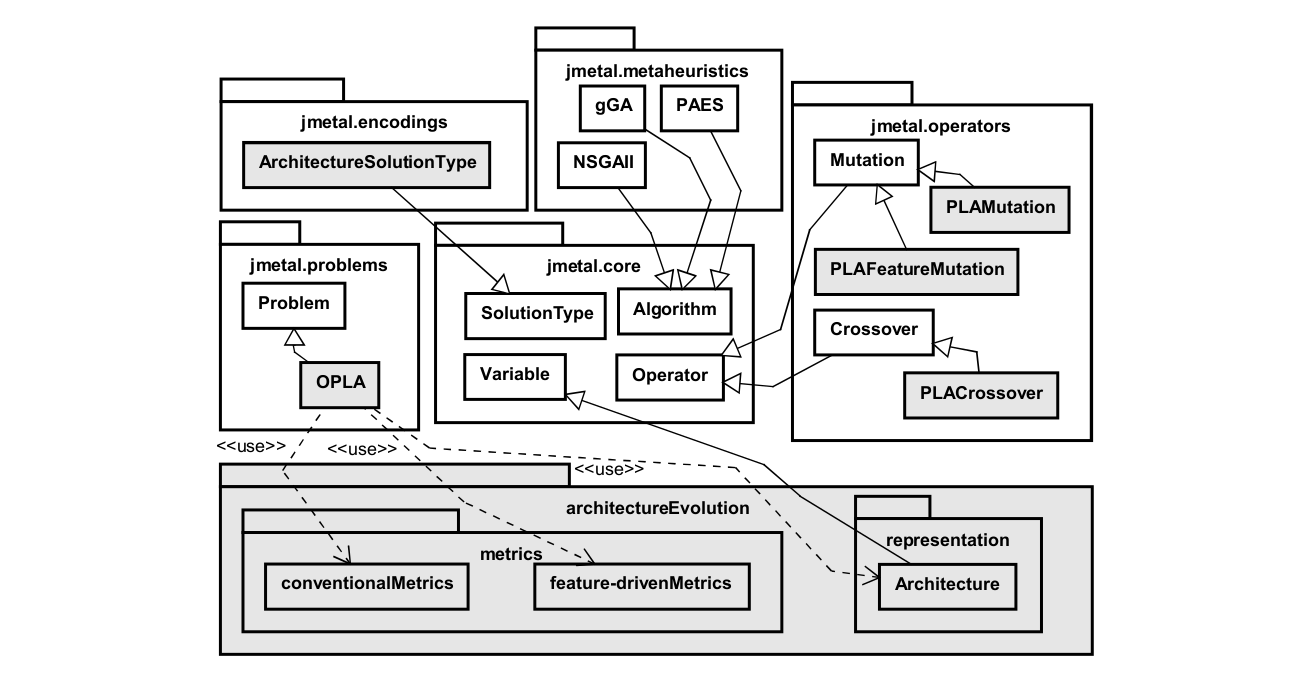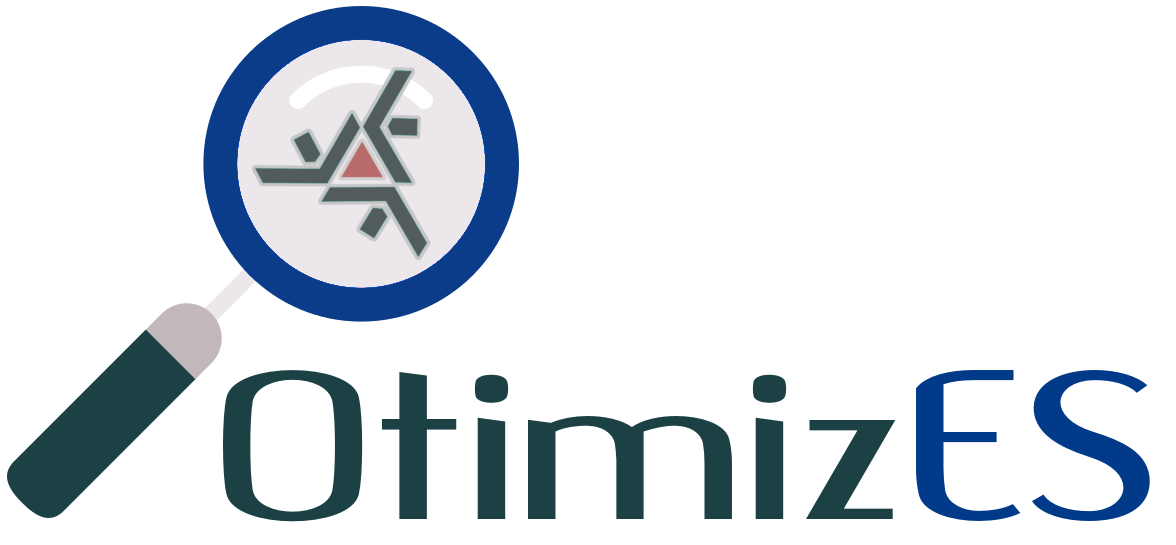
Researchers
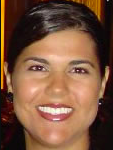
Thelma Elita Colanzi
- Thelma received the DS degree (2014) from Federal University of Paraná (UFPR), Brazil. She holds the MSc degree in Computer Science and Computational Math from University of São Paulo (USP/São Carlos), Brazil. She has been lecturer at State University of Maringá since 2006. Her areas of interest are: software design and maintenance, software product lines, search-based software engineering and multi-objective evolutionary algorithms.

Aline Maria Malachini Miotto Amaral
- Aline received the DS degree (2014) from Pontifical Catholic University of Paraná, Brazil (PUCPR). She holds the MSc degree in Computer Science and Computational Math from University of São Paulo (USP/São Carlos), Brazil. She has been lecturer at State University of Maringá since 2015. Her areas of interest are: Machine Learning, Software Product Lines and Dynamic Adaptive Search-Based Software Engineering
Multi-Objective Optimization Approach for PLA Design (MOA4PLA)
The Multi-Objective Optimization Approach for PLA design (MOA4PLA) [Colanzi et al., 2014], as the name says, is an approach to optimize Product Line Architectures (PLAs) design using multi-objective algorithms. MOA4PLA receives a PLA modeled in a UML class diagram containing all commonalities and variabilities, and optimize it while being guided by an evaluation model composed by software metrics. At the end of the optimization process, a set of solutions with the best trade-off between objectives is generated and the architect may select which architecture will be used.
Works
To display your work, send a pull request in OPLA-Tool Github updating the works.xml file with it. Just insert a new tag <work>...</work> with your information. When the Pull Request is accepted by Admin, the work will be shown here.
